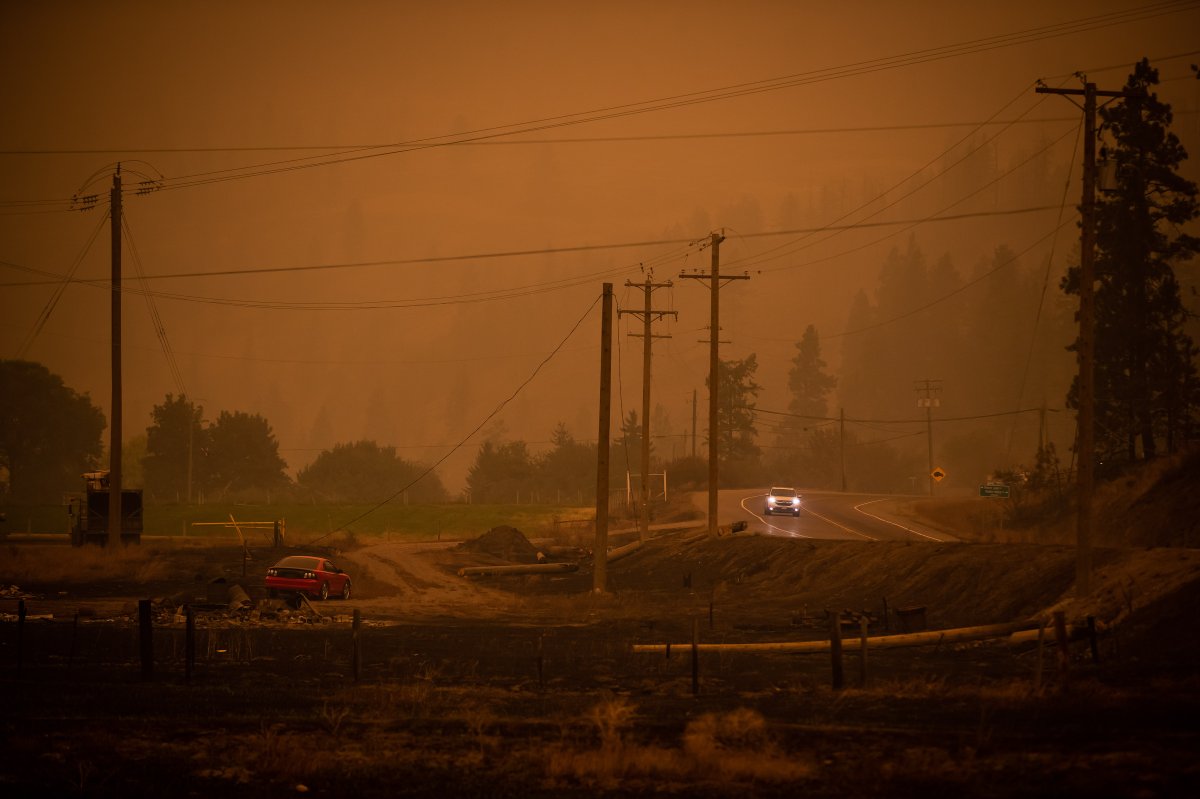British Columbia is making it more expensive to pollute and is moving away from fossil fuels in an effort to meet 2030 emission targets.

The CleanBC Roadmap to 2030 lays out a framework for individuals and a wide range of industrial sectors.
The province plans to accelerate its commitment to increase the price on carbon pollution to meet or exceed the federal benchmark.
“Here in B.C., the threat of climate change is no longer decades or even years away. The impacts are all around us, from devastating wildfires to intense heat waves and droughts,” Premier John Horgan said.
“By bringing people and businesses together, we can rise to the challenge and seize the opportunity to build a stronger, more resilient B.C. for everyone.”
The aspirational plan, which lacks specifics at times, calls for stronger regulations that will nearly eliminate industrial methane emissions by 2035.
The CleanBC Roadmap to 2030 also includes requirements for new industry projects to have enforceable plans to reach B.C.’s legislated and sectoral targets and net zero by 2050.
The province will also undertake a review of the oil and gas royalty with results released in February 2022.
“By working with all sectors, we can see clearly where we are making progress and where new thinking and resources are required,” B.C. Environment Minister George Heyman said.
“The CleanBC Roadmap puts greater focus on transitioning away from fossil fuels faster and adopting clean energy solutions.”
British Columbia hopes to reach 100 per cent zero-emission vehicles by 2035.
As part of the strategy, B.C. will develop new zero-emission vehicle targets for medium- and heavy-duty vehicles.
The province hopes to work with municipalities and communities to reduce distances travelled by vehicle by 25 per cent by 2030 compared in 2020 levels.
The plan also puts in a target to increase walking, cycling and transit by 30 per cent by 2030.
Mark Jaccard, a professor at Simon Fraser University’s School of Resource and Environmental Management, describes the plan as “necessary” and “bold.”
“It will take all of us working together to meet the challenges of climate change and the 2030 roadmap demonstrates what is possible as we work together to build a clean, healthy and equitable future for our communities,” Jaccard said.
B.C. recorded record-high temperatures this past summer, with Lytton recording the hottest temperatures ever in Canada for three days in a row.
The province then experienced an unprecedented wildfire season, with fires scorching almost one million hectares.
Thousands of people were forced to leave their homes and thousands more were on evacuation alert due to wildfire danger.
At the peak of the fire season, there were about 40 wildfires of note burning in the province.
Georgia Strait Alliance energy campaigner Andrew Radzik says the plan does not meet the requirements needed to match unprecedented events including the heat wave in the summer.
Radzik says the plan does not contain a timeline for a phase out of oil and gas production and a transition plan for workers.
“Instead of a comprehensive map of climate actions, BC has put forward yet another incomplete climate plan,” Radzik said.
“The Premier’s attachment to fossil fuel production is well known: he’s lavished billions in subsidies on fracking and to the LNG Canada project. The oil and gas industry now makes up 21 per cent of B.C.’s emissions, larger than all other industries in the province combined.”

There is wide agreement among scientists that there are links between the changing climate and the frequency and severity of extreme weather events.
“We know with great certainty that warmer temperatures come with climate change,” Faron Anslow, climate analysis and monitoring lead with the Pacific Climate Impacts Consortium (PCIC), told Global News in June.
National Resources Canada’s 2019 Canada’s Changing Climate Report, found both the mean annual temperatures in the province rose by 1.9 Celsius between 1948 and 2016. The mean summer temperature climbed 1.7 C, while winter temperatures were up by 3.7 C.
“Extreme temperature changes (in Canada), both in observations and future projections, are consistent with warming,” the report states. “Extreme warm temperatures have become hotter, while extreme cold temperatures have become less cold.”
Data from the government of British Columbia found annual maximum temperatures have climbed by 0.7 C in the last century, while annual minimum temperatures were up by an average of 2 C.













Comments